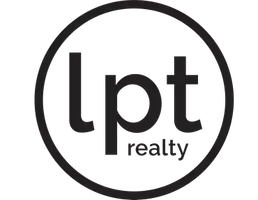The Importance of Working with a Realtor Who Has an Amazing Team

The Importance of Working with a Realtor Who Has an Amazing Team When it comes to buying or selling a home, having the right Realtor by your side can make all the difference. However, what many people may not realize is that the success of your real estate transaction often depends on more than
Read MoreDownsizing Your Home in Florida: Why It Might Be the Right Move for You

https://chatgpt.com/c/f4d77d46-fad5-4c30-8e94-5d78620d00e3#:~:text=Downsizing%20Your%20Home,LPT%20Realty%203408091
Read MoreStrategies For Buying in a High Interest Rate Era

In today's real estate market, buyers are facing the challenge of high-interest rates. With the Federal Reserve recently raising the benchmark interest rate, potential homeowners need to be strategic in their approach to buying property. In this blog post, we will discuss some effective strategies f
Read MoreExploring the Charm: Top Neighborhoods in Jacksonville, FL

Jacksonville, Florida, is a city of diverse neighborhoods, each with its own unique character and appeal. From historic districts to vibrant urban centers, there's a neighborhood in Jacksonville to suit every lifestyle and preference. In this blog post, we'll take a closer look at some of t
Read MoreA Closer Look at the Thriving Real Estate Market in Northeast Florida

Title: A Closer Look at the Thriving Real Estate Market in Northeast Florida Introduction: The real estate market in Northeast Florida has been thriving in recent years, attracting attention from homebuyers, investors, and developers alike. With its beautiful coastline, vibrant cities, and strong e
Read MoreEnhance Your Home's Value: Top 5 Transformative Upgrades

Title: Enhance Your Home's Value: Top 5 Transformative Upgrades Introduction: Your home is not only a sanctuary for you and your loved ones but also a significant investment. Whether you're planning to sell your property in the near future or simply looking to boost its overall value, the
Read MoreThe Best Reasons to Start Investing in Real Estate at a Young Age

Title: The Best Reasons to Start Investing in Real Estate at a Young Age Introduction: When it comes to building long-term wealth and financial security, real estate investment has proven to be a solid and reliable strategy. While many young adults may overlook this opportunity due to var
Read MoreUnveiling the Ins and Outs of Home Inspections in Florida

Title: Unveiling the Ins and Outs of Home Inspections in Florida Introduction: Purchasing a home is an exhilarating experience, and whether you're a first-time buyer or a seasoned homeowner, a home inspection is a crucial step in the process. In the sunshine state of Florida, where the re
Read MoreIs Owning a Home a Liability or an Asset?

Title: Is Owning a Home a Liability or an Asset? Introduction: For many individuals, the dream of owning a home is deeply ingrained in their aspirations and financial plans. However, as with any significant financial decision, it is crucial to critically evaluate whether owning a home is
Read MoreNavigating the Transition: Buying a New Home While Selling Your Current Home

Title: Navigating the Transition: Buying a New Home While Selling Your Current Home Introduction: Finding the perfect home can be an exciting and transformative experience. However, for many homeowners, the dream of buying a new home often comes with the practical challenge of selling the
Read MoreVA Loans: Guaranteed or Not? Everything You Need to Know

Title: VA Loans: Guaranteed or Not? Everything You Need to Know Introduction: When it comes to financing a home, there are various options available for prospective buyers. One such option that often stands out for its numerous benefits is the VA loan. Created to support military service
Read MoreExploring the Different Types of Housing Loans: A Comprehensive Guide

Title: Exploring the Different Types of Housing Loans: A Comprehensive Guide Introduction: Purchasing a home is a significant milestone in one's life, and for most people, it requires financial assistance in the form of housing loans. The world of housing loans can be overwhelming, with v
Read MoreExploring the Gems of Northeast Florida: Jacksonville and Beyond

Title: Exploring the Gems of Northeast Florida: Jacksonville and Beyond Introduction: Welcome to Northeast Florida, a region known for its rich history, natural beauty, and vibrant culture. At the heart of this captivating area lies Jacksonville, the largest city in the state and a destin
Read MoreUnderstanding the Distinctions: REALTOR vs. Real Estate Agent or Sales Associate

Title: Understanding the Distinctions: REALTOR vs. Real Estate Agent or Sales Associate Introduction: In the realm of real estate, the terms "REALTOR" and "real estate agent" are often used interchangeably, leading to confusion regarding their precise meanings and roles. While both profes
Read MoreWhy It's the Best Time to Buy a Home in Jacksonville, FL, Even at 7% Interest Rates

Title: Why It's the Best Time to Buy a Home in Jacksonville, FL, Even at 7% Interest Rates Introduction: The decision to buy a home is one of the most significant financial choices a person can make. It's common for potential buyers to consider waiting for more favorable market conditions or lower
Read MoreA Decade of Transformation: Evolution of Northeast Florida's Real Estate Market

Title: A Decade of Transformation: Evolution of Northeast Florida's Real Estate Market Introduction The real estate market in Northeast Florida has experienced significant changes over the last five years, reshaping the landscape of the region's housing industry. As the area has grown in popularity
Read MoreTop Tips for Sellers: Preparing Your Home for a Successful Sale

Title: Top Tips for Sellers: Preparing Your Home for a Successful Sale Introduction: Selling a home can be an exciting but challenging process. To ensure a successful sale and attract potential buyers, it's crucial to prepare your home effectively. The right preparation can not only enhan
Read More-

Introduction As retirees settle into their golden years, many are concerned about managing their finances and ensuring a comfortable retirement. Property taxes can often be a significant burden on seniors living on a fixed income. Fortunately, the state of Florida offers various property
Read More "Unlocking Real Estate Opportunities: Why Now is the Best Time to Buy in Northeast Florida"

Introduction: In the ever-evolving landscape of real estate, the decision to buy a home is often influenced by a myriad of factors, with interest rates and property values standing out as key considerations. While it's true that the state of Florida, particularly Northeast Florida, has wi
Read MoreNavigating the Dynamic Waves: The Ever-Changing Real Estate Market in North East Florida

Introduction: The real estate market in North East Florida is a dynamic landscape that continually evolves, influenced by a myriad of factors ranging from economic trends and demographic shifts to environmental considerations. As we delve into the nuances of this region's real estate, it
Read More
Categories
Recent Posts










